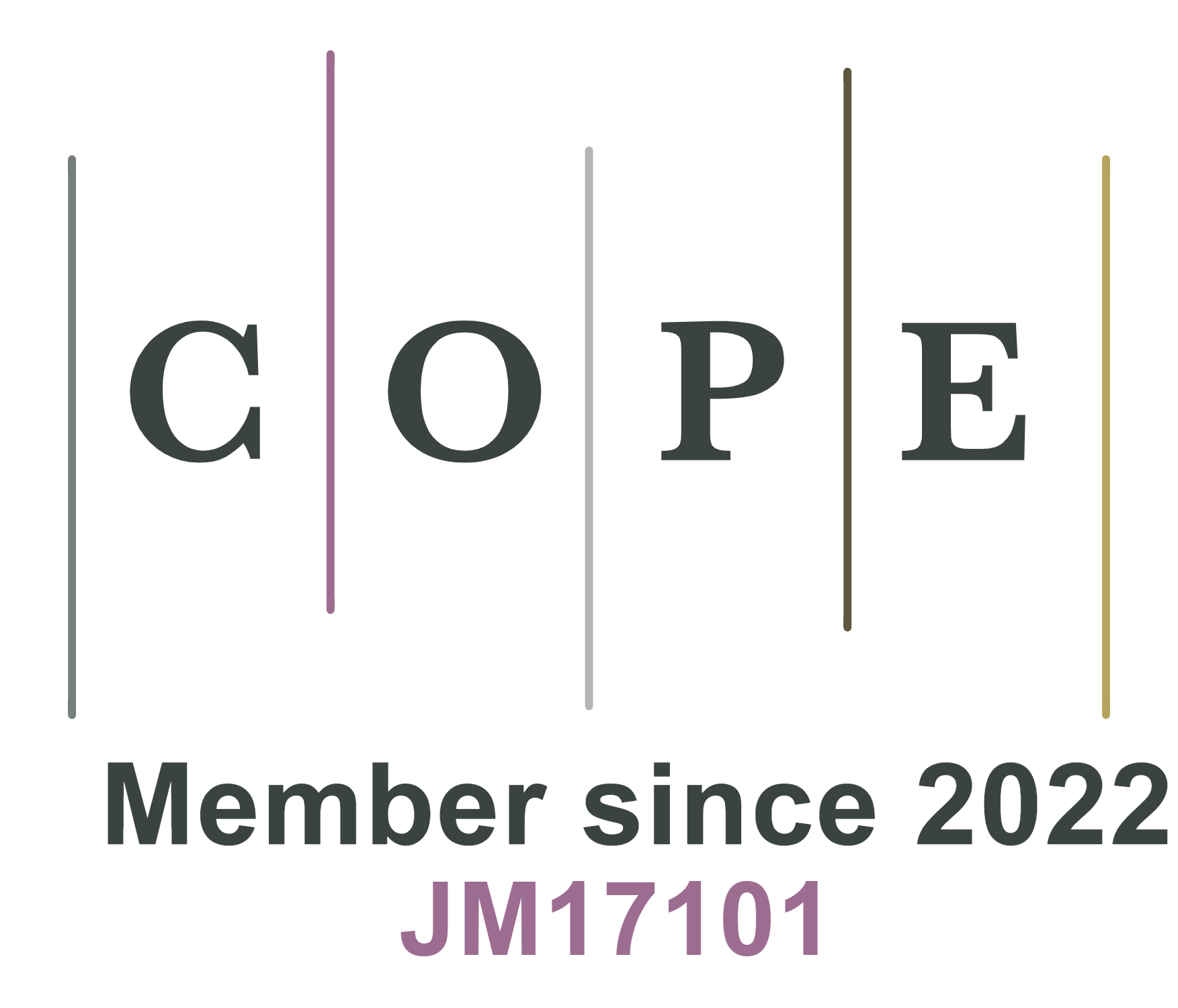Regulating the solvation environment of hybrid electrolytes towards high-temperature zinc-ion storage
Abstract
Zinc-ion batteries (ZIBs) are being explored as a potential alternative to lithium-ion batteries owing to the growing demand for safer, more sustainable, cost-effective energy storage technologies. In such systems, electrolytes, as one of the key components, have a decisive impact on their electrochemical performance. However, Zn anodes in traditional aqueous electrolytes exhibit drawbacks such as severe hydrogen evolution reactions, Zn corrosion and passivation especially at high temperatures, leading to poor cycling performance of ZIBs. Herein, we designed and evaluated a series of hybrid electrolytes consisting of zinc tetrafluoroborate hydrate [Zn(BF4)2·xH2O] as the solute and various organic solvents [tetraglyme (G4), propylene carbonate, and dimethylformamide] for
Keywords
INTRODUCTION
Zinc-ion batteries (ZIBs) are emerging as a promising alternative to lithium-ion batteries, driven by the growing demand for safer and more sustainable energy storage technologies[1-4]. A typical ZIB consists of a Zn anode, a Zn2+ storage material as the cathode, and an electrolyte[5-7]. Zn anodes offer key advantages such as high abundance (100 times that of lithium), low redox potential (-0.76 V vs. standard hydrogen electrode), compatibility with water, and high theoretical capacity (820 mAh g-1)[8-10]. However, several challenges hinder their widespread applications[11,12]. A primary issue is the corrosion and side reactions in aqueous electrolytes, which damage the electrode, compromising both stability and cycling life[13,14]. Additionally, uneven Zn deposition and dendrite growth during charging can cause short circuits and battery failure[15-17]. Despite these challenges, Zn anodes remain a strong candidate for Zn-based energy storage technologies[18,19].
Ongoing research is addressing the above issues, focusing on developing advanced electrolytes that critically influence the overall performance of Zn anodes[20-22]. Although traditional aqueous electrolytes provide high ionic conductivity and safety, they present significant challenges such as a narrow electrochemical stability window, vulnerability to water splitting, and thermal instability, all of which degrade battery performance, particularly at elevated temperatures[23,24]. To promote the practical applications of ZIBs in high-temperature environments, it is essential to develop alternative electrolytes that can overcome these limitations[25-27]. Electrolyte research for ZIBs has largely focused on enhancing cycling life and rate capability of Zn anodes, while less attention has been paid to temperature adaptability[28-31]. Currently, strategies to improve temperature adaptability include increasing electrolyte concentration and incorporating electrolyte additives[32,33]. For example, Zhang et al. have noted that a highly-concentrated 3 M zinc trifluoromethylsulfonate [Zn(OTf)2] electrolyte supports better cyclic stability than the diluted one
In this study, an ether-based hybrid electrolyte with extremely low water content is designed using tetraglyme (G4) as the solvent and zinc tetrafluoroborate hydrate [Zn(BF4)2·xH2O] as the solute for
EXPERIMENTAL SECTION
Preparation of hybrid electrolyte
The purchased Zn(BF4)2·xH2O (Macklin), DMF (> 99%, Macklin), PC (99%, Aladdin), G4 (99%, Aladdin), diethyl carbonate (DEC, 99%, Macklin), and dimethyl sulfoxide (DMSO, 99%, Macklin) were used without further purification. Zn(BF4)2·xH2O solutions with specific proportions of organic solvents were prepared as electrolyte samples.
Preparation of electrodes and cells
A commercial Zn plate (150 μm in thickness) was cut into a circle (diameter 10mm) and directly served as the electrode of Zn||Zn symmetric cell and Zn||AC full cell. Commercial AC (YP-50F) was used as the cathode material of Zn||AC full cell. To prepare the AC electrode, the AC powder, acetylene black, and binder [poly(tetrafluoroethylene), PTFE] were mixed in a weight ratio of 8:1:1 to form a homogeneous slurry by adding moderate water and ethanol; the slurry was then coated on stainless steel mesh. The AC electrode dried at 120 °C for 12h. Its mass loading was ~1 mg cm-1. The as-prepared solution and glass fiber (GF/D, Whatman) were used as the electrolyte and separator, respectively.
Materials characterization
The morphologies of Zn foils were investigated by a the Lehn Institute of Functional Materials (LIFM-Ultra-high resolution field emission scanning electron microscope (SEM, SU8010), with energy dispersive X-ray spectroscopy (EDS) for the element determination. The surface components of electrodes were characterized on an X-ray photoelectron spectrometer (XPS, Nexsa) with a monochromatic Al-Kα source (Mono AlKα, 1486.6eV, 12kV 720W).
Electrochemical measurements
The cyclic voltammetry (CV), chronoamperometry (CA), linear sweep voltammetry (LSV), and electrochemical impedance spectroscopy (EIS) measurements were conducted using an electrochemical workstation (CHI660E, Shanghai, China). The Nyquist plots were obtained using EIS with a frequency range from 100 kHz to 0.1 Hz and a potential amplitude of 10 mV. The galvanostatic charge/discharge (GCD) measurements were conducted using the Neware Battery Measurement System (CT-ZWJ-4’S-T-1U, Shenzhen, China).
RESULTS AND DISCUSSION
Performance characterization of symmetric cells with hybrid electrolytes
We prepared hybrid electrolytes using Zn(BF4)2·xH2O as the solute[39,40] and various representative organic solvents of high dielectric constants: PC, DMF, G4, DEC, and DMSO. As shown in Supplementary Figure 1, Zn(BF4)2·xH2O can be fully dissolved in PC, DMF and G4 to achieve a concentration of 0.5 M, while 0.5 M Zn(BF4)2·xH2O in DEC and DMSO were not clear solutions. Moreover, acetonitrile (AN) was not considered as a solvent due to its low boiling point (81.6 °C). Therefore, the PC-, DMF-, and G4-based hybrid electrolytes were evaluated in Zn||Zn symmetric cells at 30 °C and 60 °C. The plating/stripping tests were conducted at a current density of 1 mA cm-2 and a capacity of 0.5 mAh cm-2. As illustrated in Figure 1A and B, the cells using G4-based electrolytes demonstrated the most stable cycling performance, followed by those using PC-based electrolytes, while the cells using DMF-based electrolytes showed the poorest cycling stability. Specifically, at 30 °C [Figure 1A], the cell using a G4-based electrolyte cycled stably for over 1,200 h, while that using PC-based electrolyte experienced an evident decrease in polarization potential after ~860 h attributed to a short circuit. In sharp contrast, the cell using DMF-based electrolyte showed a drop in polarization potential solely after ~55 h. At 60 °C [Figure 1B], the cell using G4-based electrolyte maintained stable cycling for more than 350 h. In comparison, the cells using PC- and
Figure 1. Cycling performance of the Zn||Zn symmetric cells using three hybrid electrolytes. Galvanostatic Zn plating/stripping under 1mA cm-2 and 0.5 mAh cm-2 at (A) 30 °C and (B) 60 °C; Galvanostatic Zn plating/stripping under different current densities and 0.5 mAh cm-2 capacity in (C) G4-based; (D) PC-based; and (E) DMF-based hybrid electrolytes at 60 °C. PC: Propylene carbonate; DMF: Dimethylformamide.
To understand the performance deviation of Zn||Zn symmetric cells in the three hybrid electrolytes, we analyzed the surface evolution of the Zn anodes after 40 h of cycling at 60 °C. Optical images of Zn anodes showed that the surface morphology of Zn anode cycled in G4-based electrolytes was more uniform than those in PC- and DMF-based electrolytes [Insets of Figure 2A-C]. SEM images further revealed significant differences in Zn deposition morphology [Figure 2A-C]. The Zn anode cycled in a G4-based electrolyte displayed dense and uniform deposition [Figure 2A]. In contrast, the Zn anode cycled in PC-based electrolyte was covered with a planar and loose layer, which is ascribed to a solid-electrolyte interphase (SEI) [Figure 2B]. The Zn anode cycled in DMF-based electrolyte showed uneven deposition with pronounced protrusions, associated with the premature cell failure [Figure 2C]. As shown in the EDS mapping in Figure 2D-F, the Zn and F elements were distributed uniformly on the Zn anodes in the
Figure 2. Structure and composition of the Zn anodes after 20 cycles in Zn||Zn symmetric cells. SEM images for the Zn anodes cycled in (A) G4-based; (B) PC-based; and (C) DMF-based hybrid electrolytes; Insets of (A-C) showing the corresponding optical images of the Zn anodes; EDX mapping of Zn and For the Zn anodes cycled in (D) G4-based; (E) PC-based; (F) DMF-based; (G) XRD patterns of Zn anodes cycled in three hybrid electrolytes; XPS spectra of (H) Zn 2p3/2 and (I) F 1s for Zn anodes cycled in three hybrid electrolytes. PC: Propylene carbonate; DMF: Dimethylformamide; SEM: Scanning electron microscope; XRD: X-ray diffraction; XPS: X-ray photoelectron spectrometer; EDX: Energy dispersive X-ray spectroscopy.
The crystal structure of Zn anodes was analyzed by XRD. As shown in Figure 2G, the characteristic peaks indexed to Zn of the hexagonal crystal were primarily observed in Zn anodes cycled in G4-based and
Correlation between Zn2+ solvation structure and Zn deposition
To explore the impact of different hybrid electrolytes on the electrochemical performance of Zn||Zn symmetric cells, we conducted detailed characterization and analysis on their physicochemical properties. First, the ionic conductivities of three hybrid electrolytes decreased in the order: DMF-based electrolyte (3.21 mS cm-1) > PC-based electrolyte (2.08 mS cm-1) > G4-based electrolyte (0.56 mS cm-1) [Figure 3A]. The ion transference number followed the same trend [Supplementary Figure 4]: DMF-based electrolyte (0.48) > PC-based electrolyte (0.24) ≈ G4-based electrolyte (0.23). Considering the superior electrochemical performance of G4-based electrolytes despite their lower ionic conductivity and transference number, bulk ion transport is not the decisive factor driving the performance difference. Then, we tested the thermal stability of the electrolytes using an ARC [Figure 3B]. All three electrolytes demonstrated exothermic behavior at temperatures exceeding 150 °C, as confirmed through the ARC. Consequently, thermal stability cannot sufficiently explain the observed performance discrepancy among the hybrid electrolytes. As shown in Figure 3C, the G4-based electrolyte exhibited a more negative stability window when compared with the PC- and DMF-based electrolytes, which is beneficial for alleviated HER.
Figure 3. Correlations between electrolyte feature and electrochemical performance of Zn anodes. (A) Ionic conductivity of the three electrolytes; (B) Temperature change vs. time during the heatwaitseek mode of three hybrid electrolytes; (C) Electrochemical stability windows of three hybrid electrolytes measured by linear sweep voltammetry curves at a scan rate of 2 mV s-1; (D) The optimized structures and the corresponding binding energies between a Zn2+ ion and a solvent(s) from DFT calculations; FTIR spectra showing (E) the O-H stretching vibration of H2O and (F) the B-F stretching vibration of BF4- for three hybrid electrolytes; Schematics showing the Zn deposition behaviors on the Zn anode in (G) G4-based; (H) PC-based; and (I) DMFbased hybrid electrolytes. Color mapping: Zn gray, C blue, O red, H white, B green, F yellow, N purple. DFT: Density functional theory; FTIR: Fourier transform infrared; PC: Propylene carbonate; DMF: Dimethylformamide.
The interaction between a Zn2+ ion and organic solvent(s) was assessed via density functional theory (DFT) calculations. As shown in Figure 3D, the binding energy of Zn2+-G4 (-9.64 eV) was significantly larger than those of Zn2+-PC (-7.71 eV) and Zn2+-DMF (-8.13 eV). The huge binding energy difference (ΔEb > 1.8 eV) indicates a much stronger Zn2+-G4 interaction compared to Zn2+-PC and Zn2+-DMF interactions. From this, we infer that in the solvation structure formed in the G4-based electrolyte, Zn2+ ions are primarily coordinated with G4 molecules, with minimal H2O molecules present. The solvation structure in G4-based electrolyte leads to low conductivity and transference number because of minimal H2O molecules around Zn2+ ions. However, this likely contributes to the suppressed HER and superior performance of the
To validate the DFT binding energy calculations, we conducted FTIR spectroscopy on the three hybrid electrolytes, and solid Zn(BF4)2·xH2O as reference. The O-H stretching vibration of H2O exhibited a broad band at 3,200-3,600 cm-1 [Figure 3E]. An intense peak at around 3,600 cm-1 was observed for the solid Zn(BF4)2·xH2O, attributed to the H2O molecules strongly coordinated with Zn2+ ions. Upon the addition of organic solvents, as for the hybrid electrolytes, the strong peak shifted to lower wavenumbers due to the weakened coordination between H2O molecules and Zn2+ ions. This peak shift was the most pronounced in the G4-based electrolyte, indicating the smallest amount of H2O molecules in the Zn2+ solvation sheath of the G4-based electrolyte. Additionally, for the solid Zn(BF4)2·xH2O, the characteristic band of the B-F stretching vibration of BF4- anions appeared as two peaks at 520-540 cm-1 [Figure 3F]. These two distinct peaks were preserved for the PC-based electrolyte despite the peak shifting to higher wavenumbers than the solid Zn(BF4)2·xH2O, indicating that a certain amount of BF4- anions participated in the Zn2+ solvation sheath of PC-based electrolyte. Comparatively, the two peaks merged into one for the G4- and DMF-based electrolytes, implying that the BF4- anions in Zn2+ solvation sheath were replaced by the G4 and DMF solvents. These FTIR results can be explained by the binding energies from DFT calculations. The stronger Zn2+-G4 interaction made the H2O molecules and BF4- anions be excluded from the Zn2+ solvation sheath, while the weaker Zn2+-PC interaction made a minor change.
Based on the aforementioned results, the Zn deposition features in the three hybrid electrolytes were correlated with their Zn2+ solvation structures. Unlike the previous studies of co-solvent electrolytes, herein, the organic solvents with strong solvation abilities could solve Zn(BF4)2·xH2O without extra water[41,42]. In the G4-based electrolyte [Figure 3G], Zn2+ ions are predominantly coordinated by G4 molecules, with minor BF4- and H2O in the Zn2+ solvation sheath. This, combined with the high thermal stability of the electrolyte, allows for the uniform Zn deposition on the anode and minimized side reactions associated with H2O. In contrast, in the PC-based electrolyte [Figure 3H], both BF4- and H2O are coordinated with Zn2+ ions. The involvement of BF4- in the Zn2+ solvation sheath contributes to the formation of protective ZnF2-based SEI on the Zn anode. In contrast, the presence of H2O in the Zn2+ solvation sheath promotes H2O-associated side reactions at high temperatures, which, over time, degrades the cell performance. In the DMF-based electrolyte [Figure 3I], a large amount of H2O participates in the Zn2+ solvation sheath without the presence of BF4-, causing severe side reactions and thus the poorest performance among the three electrolytes. Compared with the PC- and DMF-based electrolytes, the G4-based electrolyte exhibited a more stable Zn2+ solvation sheath with considerably lower water content, leading to its superior high-temperature performance.
Full cells based on various hybrid electrolytes
The practical application of the hybrid electrolytes was further demonstrated by assembling full cells using Zn as the anode and AC as the cathode[43], and the electrochemical tests were conducted at 60 °C.
Figure 4. Electrochemical performances of Zn||AC full cells. CV curves at various scan rates using (A) G4-based; (B) PCbased; and (C) DMFbased hybrid electrolytes; (D) Cycling stability at 0.5A g-1 for the full cells using three hybrid electrolytes; (E) GCD curves of the full cell using G4-based-electrolyte at 0.5 A g-1 from the 2nd to 1,000th cycle at 60 °C. PC: Propylene carbonate; DMF: Dimethylformamide; CV: Cyclic voltammetry; GCD: Galvanostatic charge/discharge.
CONCLUSION
In conclusion, we designed hybrid electrolytes consisting of Zn(BF4)2·xH2O and different organic solvents (PC, DMF, G4) for high-temperature ZIBs. As elaborated via theoretical simulations and spectroscopic characterizations, the more reversible and uniform Zn deposition at 60 °C in the G4-based electrolyte was attributed to the strong Zn2+-G4 interaction and the unique Zn2+ solvation structure primarily surrounded by G4 molecules, which significantly suppressed H2O associated side reactions. The superiority of the
DECLARATIONS
Authors’ contributions
Research design, manuscript drafting: Xie, Y.
Material characterization, formal analysis: Xie, Y.; Li, G.; Chen, Y.
Review, supervision, manuscript drafting, funding acquisition: Dou, Q.; Yan, X.
Availability of data and materials
The data is accessible and available upon request from the authors.
Financial support and sponsorship
This work was supported by the National Natural Science Foundation of China (22279166, 22309211); the Guangdong Basic and Applied Basic Research Foundation (2022B1515120019, 2024A1515010158); the Young Talent Support Project of Guangzhou Association for Science and Technology; the Fundamental Research Funds for the Central Universities, Sun Yat-sen University (22qntd0101, 23qnpy02).
Conflicts of interest
All authors declared that there are no conflicts of interest.
Ethical approval and consent to participate
Not applicable.
Consent for publication
Not applicable.
Copyright
© The Author(s) 2025.
Supplementary Materials
REFERENCES
1. Li, Z.; Tan, J.; Wang, Y.; et al. Building better aqueous Zn-organic batteries. Energy. Environ. Sci. 2023, 16, 2398-431.
2. Wang, Y.; Li, Q.; Hong, H.; et al. Lean-water hydrogel electrolyte for zinc ion batteries. Nat. Commun. 2023, 14, 3890.
3. Gourley, S. W.; Brown, R.; Adams, B. D.; Higgins, D. Zinc-ion batteries for stationary energy storage. Joule 2023, 7, 1415-36.
4. Cao, J.; Zhang, D.; Chanajaree, R.; et al. A low-cost separator enables a highly stable zinc anode by accelerating the de-solvation effect. Chem. Eng. J. 2024, 480, 147980.
5. Zong, Y.; He, H.; Wang, Y.; et al. Functionalized separator strategies toward advanced aqueous zinc-ion batteries. Adv. Energy. Mater. 2023, 13, 2300403.
6. Chen, J.; Zhao, W.; Jiang, J.; et al. Challenges and perspectives of hydrogen evolution-free aqueous Zn-ion batteries. Energy. Storage. Mater. 2023, 59, 102767.
7. Fang, G.; Zhou, J.; Pan, A.; et al. Recent advances in aqueous zinc-ion batteries. ACS. Energy. Lett. 2018, 3, 2480-501.
8. Heptonstall, P. J.; Gross, R. J. K. A systematic review of the costs and impacts of integrating variable renewables into power grids. Nat. Energy. 2021, 6, 72-83.
9. Chen, M.; Chen, J.; Zhou, W.; Han, X.; Yao, Y.; Wong, C. P. Realizing an all-round hydrogel electrolyte toward environmentally adaptive dendrite-free aqueous Zn-MnO2 batteries. Adv. Mater. 2021, 33, e2007559.
10. Xiao, D.; Lv, X.; Fan, J.; Li, Q.; Chen, Z. Zn-based batteries for energy storage. Energy. Mater. 2023, 3, 300007.
11. Liu, Z.; Cui, T.; Pulletikurthi, G.; et al. Dendrite-free nanocrystalline zinc electrodeposition from an ionic liquid containing nickel triflate for rechargeable Zn-based batteries. Angew. Chem. Int. Ed. 2016, 55, 2889-93.
12. Yin, Y.; Li, X. Review and perspectives on anodes in rechargeable aqueous zinc-based batteries. Renewables 2023, 1, 622-37.
13. Wang, S.; Yuan, C.; Chang, N.; et al. Act in contravention: a non-planar coupled electrode design utilizing “tip effect” for ultra-high areal capacity, long cycle life zinc-based batteries. Sci. Bull. 2021, 66, 889-96.
14. Cao, Q.; Pan, Z.; Gao, Y.; et al. Stable imprinted zincophilic Zn anodes with high capacity. Adv. Funct. Mater. 2022, 32, 2205771.
15. Xu, C.; Li, B.; Du, H.; Kang, F. Energetic zinc ion chemistry: the rechargeable zinc ion battery. Angew. Chem. Int. Ed. 2012, 51, 933-5.
16. Li, H.; Ma, L.; Han, C.; et al. Advanced rechargeable zinc-based batteries: recent progress and future perspectives. Nano. Energy. 2019, 62, 550-87.
17. Fu, J.; Cano, Z. P.; Park, M. G.; Yu, A.; Fowler, M.; Chen, Z. Electrically rechargeable zinc-air batteries: progress, challenges, and perspectives. Adv. Mater. 2017, 29.
18. Wu, B.; Wu, Y.; Lu, Z.; et al. A cation selective separator induced cathode protective layer and regulated zinc deposition for zinc ion batteries. J. Mater. Chem. A. 2021, 9, 4734-43.
19. Zeng, X.; Zhang, S.; Long, T.; et al. An amphipathic ionic sieve membrane for durable and dendrite-free zinc-ion batteries. Renewables 2024, 2, 52-60.
20. Hu, L.; Xiao, P.; Xue, L.; Li, H.; Zhai, T. The rising zinc anodes for high-energy aqueous batteries. EnergyChem 2021, 3, 100052.
21. Lu, K.; Zhang, H.; Song, B.; Pan, W.; Ma, H.; Zhang, J. Sulfur and nitrogen enriched graphene foam scaffolds for aqueous rechargeable zinc-iodine battery. Electrochim. Acta. 2019, 296, 755-61.
22. Zhang, Y.; Bi, S.; Niu, Z.; Zhou, W.; Xie, S. Design of Zn anode protection materials for mild aqueous Zn-ion batteries. Energy. Mater. 2022, 2, 200012.
23. Zhang, X.; Weng, H.; Miu, Y.; et al. Atomic-scale inorganic carbon additive with rich surface polarity and low lattice mismatch for zinc to boost Zn metal anode reversibility. Chem. Eng. J. 2024, 482, 148807.
24. Yang, J.; Yin, B.; Sun, Y.; et al. Zinc anode for mild aqueous zinc-ion batteries: challenges, strategies, and perspectives. Nano-Micro. Lett. 2022, 14, 42.
25. Nian, Q.; Wang, J.; Liu, S.; et al. Aqueous batteries operated at -50 °C. Angew. Chem. Int. Ed. 2019, 58, 16994-9.
26. Chen, T. Y.; Lin, T. J.; Vedhanarayanan, B.; Shen, H. H.; Lin, T. W. Optimization of acetamide based deep eutectic solvents with dual cations for high performance and low temperature-tolerant aqueous zinc ion batteries via tuning the ratio of co-solvents. J. Colloid. Interface. Sci. 2023, 629, 166-78.
27. Shi, Y.; Wang, R.; Bi, S.; Yang, M.; Liu, L.; Niu, Z. An anti-freezing hydrogel electrolyte for flexible zinc-ion batteries operating at -70 °C. Adv. Funct. Mater. 2023, 33, 2214546.
28. Samanta, P.; Ghosh, S.; Kundu, A.; Samanta, P.; Murmu, N. C.; Kuila, T. Recent progress on the performance of Zn-ion battery using various electrolyte salt and solvent concentrations. ACS. Appl. Electron. Mater. 2023, 5, 100-16.
29. Yang, F.; Yuwono, J. A.; Hao, J.; et al. Understanding H2 evolution electrochemistry to minimize solvated water impact on zinc-anode performance. Adv. Mater. 2022, 34, e2206754.
30. Liu, C.; Xie, X.; Lu, B.; Zhou, J.; Liang, S. Electrolyte strategies toward better zinc-ion batteries. ACS. Energy. Lett. 2021, 6, 1015-33.
31. Du, Y.; Li, Y.; Xu, B. B.; et al. Electrolyte salts and additives regulation enables high performance aqueous zinc ion batteries: a mini review. Small 2022, 18, e2104640.
32. Jin, Y.; Han, K. S.; Shao, Y.; et al. Stabilizing zinc anode reactions by polyethylene oxide polymer in mild aqueous electrolytes. Adv. Funct. Mater. 2020, 30, 2003932.
33. Sun, T.; Zheng, S.; Du, H.; Tao, Z. Synergistic effect of cation and anion for low-temperature aqueous zinc-ion battery. Nanomicro. Lett. 2021, 13, 204.
34. Zhang, N.; Dong, Y.; Jia, M.; et al. Rechargeable aqueous Zn-V2O5 battery with high energy density and long cycle life. ACS. Energy. Lett. 2018, 3, 1366-72.
35. Wang, N.; Yang, Y.; Qiu, X.; Dong, X.; Wang, Y.; Xia, Y. Stabilized rechargeable aqueous zinc batteries using ethylene glycol as water blocker. ChemSusChem 2020, 13, 5556-64.
36. Liu, S.; Zhang, R.; Mao, J.; Zhao, Y.; Cai, Q.; Guo, Z. From room temperature to harsh temperature applications: Fundamentals and perspectives on electrolytes in zinc metal batteries. Sci. Adv. 2022, 8, eabn5097.
37. Zhang, Q.; Xu, S.; Wang, Y.; Dou, Q.; Sun, Y.; Yan, X. Temperature-dependent structure and performance evolution of “water-in-salt” electrolyte for supercapacitor. Energy. Storage. Mater. 2023, 55, 205-13.
38. Li, X.; Ji, C.; Shen, J.; et al. Amorphous heterostructure derived from divalent manganese borate for ultrastable and ultrafast aqueous zinc ion storage. Adv. Sci. 2023, 10, e2205794.
39. Ma, L.; Chen, S.; Li, N.; et al. Hydrogen-free and dendrite-free all-solid-state Zn-ion batteries. Adv. Mater. 2020, 32, e1908121.
40. Edmondson, G. K.; Benisek, L. 27-solvent-applied flame-resist treatments for wool, cotton, and wool-cotton blends. J. Text. Inst. 1977, 68, 230-9.
41. Kao-Ian, W.; Sangsawang, J.; Gopalakrishnan, M.; et al. Preinserted ammonium in MnO2 to enhance charge storage in dimethyl sulfoxide based zinc-ion batteries. ACS. Appl. Mater. Interfaces. 2024, 16, 56926-34.
42. Wang, Z.; Bai, L.; Fan, H.; Wang, Y.; Liu, W. Solvation strategies in various electrolytes for advanced zinc metal anode. J. Energy. Chem. 2024, 94, 740-57.
Cite This Article
How to Cite
Download Citation
Export Citation File:
Type of Import
Tips on Downloading Citation
Citation Manager File Format
Type of Import
Direct Import: When the Direct Import option is selected (the default state), a dialogue box will give you the option to Save or Open the downloaded citation data. Choosing Open will either launch your citation manager or give you a choice of applications with which to use the metadata. The Save option saves the file locally for later use.
Indirect Import: When the Indirect Import option is selected, the metadata is displayed and may be copied and pasted as needed.






















Comments
Comments must be written in English. Spam, offensive content, impersonation, and private information will not be permitted. If any comment is reported and identified as inappropriate content by OAE staff, the comment will be removed without notice. If you have any queries or need any help, please contact us at [email protected].